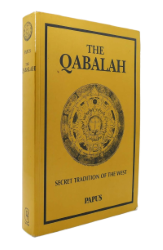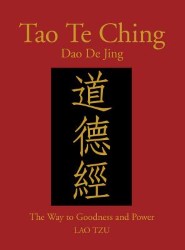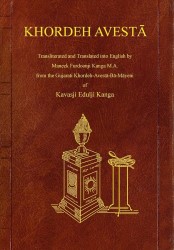| By: Paul S. Cilwa | Page Views: 3160 | ||
| A surprising number of religious traditions, including Judeo-Christian, include references to reincarnation. | |||

Most people on earth believe in reincarnation, though only
a minority of Americans do. The majority of believers live in India, China, and
Tibet. Westerners have looked at the poverty, disease, and overpopulation of
these countries, and put blame for these conditions on the local
belief in
reincarnation. Yet it was the same Westerners who colonized those countries
and caused the resulting poverty, disease, and yes, even overpopulation.
So let's look at various world religions and see what they actually have to say.
Christianity

Matt. 17:12&13:I tell you that Elijah has already come and
people did not recognize him…Then the disciples understood
that [Jesus] was talking to them about John the Baptist.
Matt. 11:14:..and if you are willing to believe their message, John is Elijah,
whose coming was predicted. Listen, then, if you have ears!
John 3:6:A person is born physically of Human parents, but he
is born spiritually of the Spirit.
John 9:1 The disciples asked Jesus: Teacher, whose sin caused
him to be born blind? Was it his own or his parents' sin?
(How could his fault be considered when he was born blind?)
History shows that early Christians generally accepted the belief in reincarnation until the teachings of Origen became unpopular and the belief in reincarnation was banned (see First Council of Nicaea 325 CE and Second Council of Constantinople 553 CE).
Islam

Surah Taha, verse 55:Allah hath caused you to grow from the earth, and afterwards He maketh
you return thereto, and He will bring you forth again.
As with Christianity, Islam no longer supports the notion of reincarnation despite the above verse. When people no longer believe in many lives, they are easier to control as death becomes a scarier concept.
Hinduism

2:22: Even as a person casts off worn-out clothes and puts on
others that are new, so the embodied Self casts off worn-out bodies and enters
into others that are new.
4:5 Krishna:Many a birth have I passed through, and so have
you. I know them all, but you know them not.
The Bhagavad-Gita explains that the soul is eternal and distinct from the body, which is temporary and subject to change. The soul transmigrates from one body to another according to its karma, or the results of its actions in previous lives. The Bhagavad-Gita teaches that one can break free from this cycle of birth and death by attaining Krishna consciousness, or the state of loving devotion to the Supreme Lord. By surrendering to Krishna and performing one’s duty without attachment, one can achieve liberation and return to the spiritual world, where there is no more reincarnation
Judaism

According to Qabalah, reincarnation is a fundamental tenet of Judaism and a way for the soul to achieve complete transformation and perfection. Qabalah teaches that every soul has to fulfill all 613 commandments of the Torah in thought, speech, and action, and if it fails to do so in one lifetime, it has to come back again and again until it completes its mission.
Reincarnation also provides an opportunity for rectification and atonement for the sins and mistakes of previous lives. Qabalah explains that the soul is composed of different parts, and only the parts that need correction are reincarnated, while the parts that have been elevated by Torah and mitzvot remain in the higher worlds. Reincarnation is based on the principle that G-d created the world for a purpose, and that purpose is to make a home for Him in this world, where His presence is hidden and challenged by evil. The soul, as a spark of G-d, participates in this purpose by revealing G-d’s light in the world through its free choice and good deeds.
Reincarnation is not a form of fatalism or predestination, but rather a process of spiritual growth and development that depends on the individual’s choices and actions in each life.
Sikhism

The holy book of Sikhism is the Guru Granth Sahib. It is also sometimes called the Adi Granth or the First Book. It is a collection of hymns and teachings of the Sikh gurus and other saints of different religions. Sikhs regard it as the final, sovereign, and eternal Guru (teacher).
Sikhism teaches that the soul goes through a cycle of births and deaths until it attains liberation by merging with Waheguru. The quality of each life is determined by one's actions and thoughts in previous lives. Sikhism rejects the caste system and the idea of salvation by any other means than Waheguru's grace.
The name most widely used for God by Sikhs is Waheguru, which means wondrous enlightener
. Sikhs believe
that there is only one God, who created everything, and that Waheguru must remain in the mind at all times.
Other names for God in Sikhism include Satguru (the true Guru), Vahiguru (the wonderful sovereign),
and Ik Onkar (the one creator). Sikhs do not believe that God has a form or a gender, but rather that
God is nirgun (without form) and sagun (with form) at the same time.
Jainism

Jainism is an ancient religion that emphasizes non-violence, asceticism, and self-control. Jainism believes that every living being has a soul that is trapped in a cycle of reincarnation due to karma, or the accumulated effects of one's actions. The goal of Jainism is to achieve moksha, or liberation from the cycle, by following the ethical principles of ahimsa (non-violence), satya (truthfulness), asteya (non-stealing), brahmacharya (chastity), and aparigraha (non-attachment).
Taoism

Taoism is a philosophical and religious tradition that originated in China. Taoism teaches that the Tao, or the Way, is the ultimate reality and the source of all things. Taoism believes that humans have three souls: the hun, the po, and the shen. The hun is the ethereal soul that leaves the body after death and can be reincarnated into another human or animal. The po is the corporeal soul that stays with the body and dissolves into the earth. The shen is the divine soul that connects with the Tao and transcends the cycle of reincarnation.
Zoroastrianism

Zoroastrianism is one of the oldest monotheistic religions in the world. It originated in ancient Persia and worships Ahura Mazda, the Wise Lord, as the creator and protector of the universe. Zoroastrianism believes that humans have a dual nature: a physical body and a spiritual soul. The soul undergoes a series of tests and trials in this world and the next, until it reaches the final judgment, where it will either join Ahura Mazda in paradise or be consigned to the abyss of evil.



